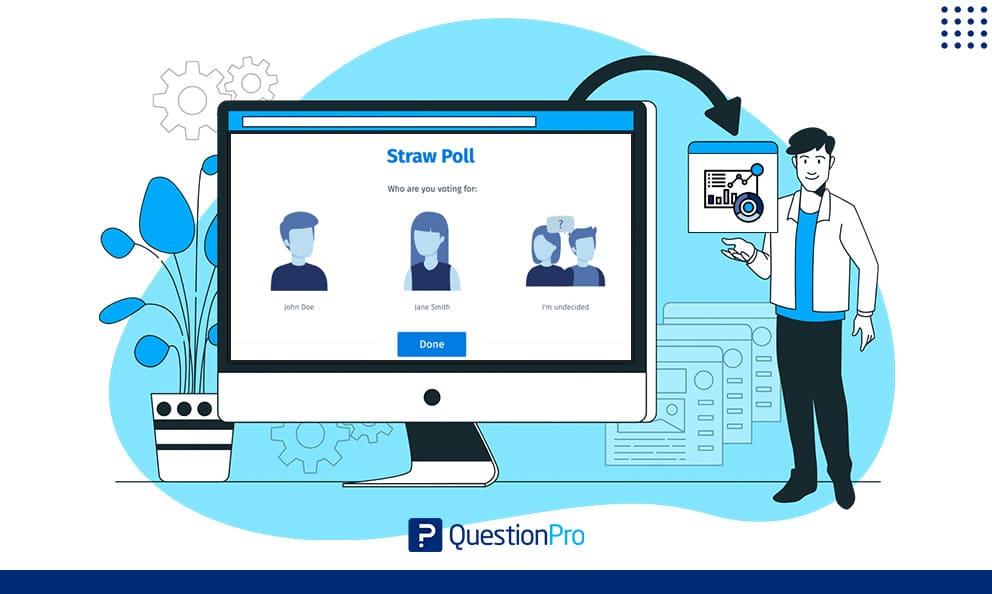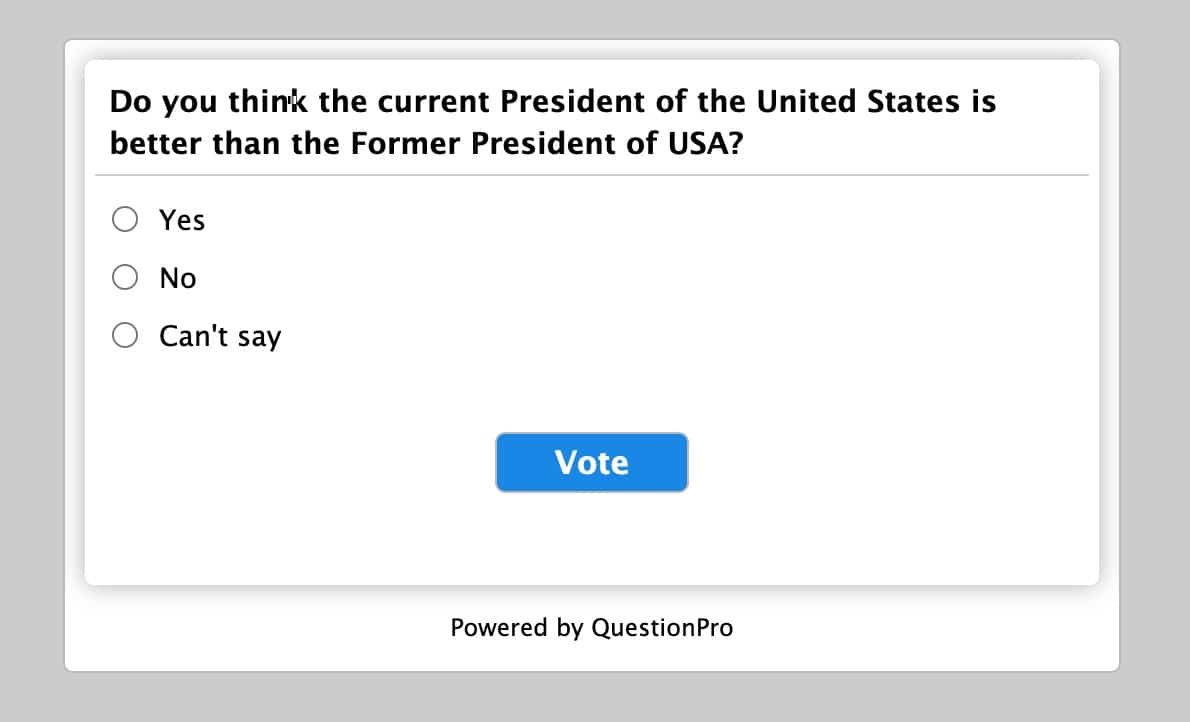
While there are many ways to learn more about people’s opinions, preferences, and feedback, such as online surveys, communities, focus groups, and more, polls offer a great way to measure public sentiment. There are different types of polls, such as benchmark polls, exit polls, push polls, rating polls, etc. Today we’ll talk about one of the most commonly used opinion polls: The straw poll. A straw poll can be a scientific or unscientific poll questions depending on the selection of the sample audience.
We can broadly categorize these polls as “scientific” polls and “unscientific” polls. Scientific polls happen in a controlled environment with a randomly selected sample audience. It represents the demographic distribution of the population and is carefully curated to ensure data accuracy. On the other hand, unscientific polls are conducted without any control over the selection of the sample audience.
What is meant by a straw poll question or a straw poll?
A straw poll, also known as a straw or straw ballot, is an informal vote, sometimes conducted on an ad-hoc basis. Usually, it is used by politicians to gain insights into public opinion on a specific subject. Based on the results, they decide what political stand they should take and say regarding the matter. They devise their strategy accordingly to get the maximum number of votes.
In the world of market research, a straw poll is conducted to understand the experience of the target audience. Straw polls help organizations get a quick pulse check of the situation. They can use it to gauge employee satisfaction or customer experience. Universities can use straw polls to determine whether the students liked the course and faculty. Based on the results, they can tweak the course content or pass on the feedback to the faculty.
Straw polls used to be conducted over the telephone, but with the use of technology, they are conducted online. You can answer the question only once and submit your vote. However, many online survey tools let you create multiple-choice questions or an open-ended textbox, depending on the topic.
Read more: Poll vs Survey
Example of a straw poll
Consider the question below that tries to know what people think about the U.S.’s international policies. It helps understand the public’s perception of the government policies and the likely impact on upcoming elections. This example straw poll question can help leaders to know if their decisions will be well-accepted and whether they can stay popular among the people.
In the above sample online straw question, the poll maker tries to get insights into people’s perceptions of the President of the United States. Although it doesn’t give insights into the ‘why’ behind their answers, it is a quick method to gauge public sentiment. You can ask one or two follow-up questions to understand the reasons behind their vote.
How to create a straw poll with QuestionPro?
Choose a sample audience that represents the demographic distribution of your target market. Next, sign up for an online poll creator tool that lets you easily create and distribute straw polls. Customize the look and feel of your poll to increase its credibility and get the maximum number of responses. Make sure your online straw poll is accessible for respondents with different needs.
QuestionPro offers a wide range of customization options, including color, button text, the width of the display window, etc. You can preview the question before going live on social media platforms like Facebook, LinkedIn, and Twitter. You can also embed the HTML text on your website and analyze the results in the application.
To ensure data accuracy and valid votes, you can configure the application to accept one vote only per IP address. You can also choose whether to show the results after voting or not. The real-time dashboard lets you view the performance of your straw poll along with participant statistics. You can download the responses or export them in standard formats.
Advantages of Creating a Straw Poll
Offer a dialogue: A straw poll quiz creates a communication channel between different sections of society. It encourages a dialogue between authorities and people on subjects they would otherwise not hold direct discussions. It helps to determine the scope of further meetings between the concerned parties.
Identify public sentiment: Quick impromptu polls like a straw vote help to gauge public emotions and opinion. Making decisions based on public sentiment increase the chances of success and acceptance of the government institutions or regulatory authorities.
Quick results: It hardly takes a few minutes to create a spontaneous straw poll question. If you want to collect from a large group of people, online straw polls really come in handy. The respondents don’t need to spend much time answering the poll survey.
Real-time insights: As the straw poll survey contains only one question, it is quick to answer and analyze the results. You can view the interim results while the poll is midway through or analyze the final results once everyone is interviewed. The utility of the insights generated depends on the gravity of the subject. At times, it may not be wise to consider the interim results as it does not reflect the opinions of the complete set of audience members.
Data accuracy: You can trust the data accuracy as far as the respondents’ honesty is concerned. There is no survey fatigue, so people tend to give real answers. Also, if the audience does not represent the demographic distribution, it might present a false picture, thus creating a selection bias. Hence, depending on the sample distribution and topic, you can gain accurate insights into public opinion.
Conclusion
Though straw polls might be considered unscientific, given their random and spontaneous nature, you can improve their usability by asking screening questions related to identity. We suggest creating a free account and exploring the tool to have a better idea. Our Essentials account is free for a lifetime and does not require a credit card. You can create any number of surveys and polls.








